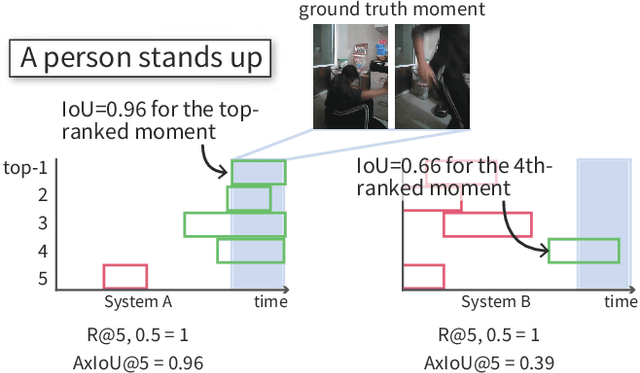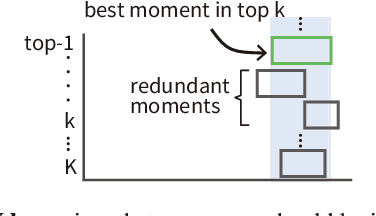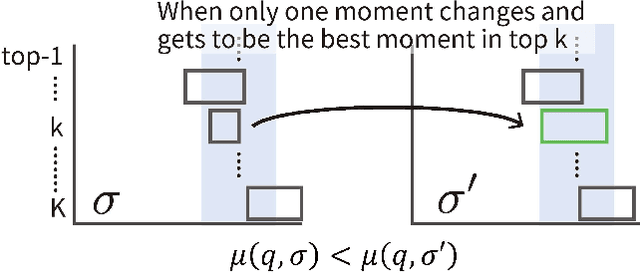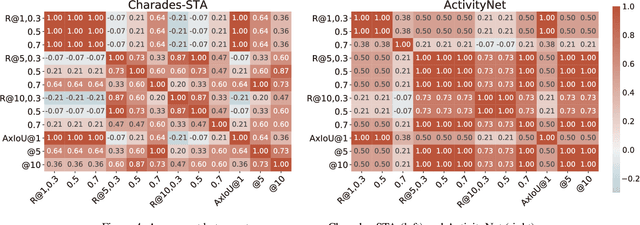AxIoU: An Axiomatically Justified Measure for Video Moment Retrieval
Paper and Code
Mar 30, 2022



Evaluation measures have a crucial impact on the direction of research. Therefore, it is of utmost importance to develop appropriate and reliable evaluation measures for new applications where conventional measures are not well suited. Video Moment Retrieval (VMR) is one such application, and the current practice is to use R@$K,\theta$ for evaluating VMR systems. However, this measure has two disadvantages. First, it is rank-insensitive: It ignores the rank positions of successfully localised moments in the top-$K$ ranked list by treating the list as a set. Second, it binarizes the Intersection over Union (IoU) of each retrieved video moment using the threshold $\theta$ and thereby ignoring fine-grained localisation quality of ranked moments. We propose an alternative measure for evaluating VMR, called Average Max IoU (AxIoU), which is free from the above two problems. We show that AxIoU satisfies two important axioms for VMR evaluation, namely, \textbf{Invariance against Redundant Moments} and \textbf{Monotonicity with respect to the Best Moment}, and also that R@$K,\theta$ satisfies the first axiom only. We also empirically examine how AxIoU agrees with R@$K,\theta$, as well as its stability with respect to change in the test data and human-annotated temporal boundaries.
 Add to Chrome
Add to Chrome Add to Firefox
Add to Firefox Add to Edge
Add to Edge